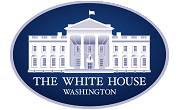Government/Policy

June 15, 2021
U.S.-EU Seek Resolution to Section 232 Before Year End: White House
Written by Michael Cowden
The White House has confirmed that the United States and the European Union are in discussions to resolve “existing differences” on Section 232 tariffs on steel and aluminum from the EU before the end of the year.
“We are determined to work together to resolve tensions arising from the U.S. application of tariffs on imports from the EU under Section 232, and will work towards allowing trade to recover from its 2020 lows,” the White House said in a statement on Tuesday, June 15.
![]() The White House also said the U.S. and EU would work together “to address excess capacity.”
The White House also said the U.S. and EU would work together “to address excess capacity.”
“We commit to ensure the long-term viability of our steel and aluminum industries,” the White House said. (See No. 21 of the statement here.)
The Section 232 discussions were mentioned in the broader context of a trade dentente. The two sides said they were also working to resolve disputes on large civil aircraft–a reference to long-running trade disputes between U.S. aircraft maker Boeing and EU aircraft maker Airbus.
Section 232 tariffs, 25% in the case of steel and 10% in the case of aluminum, were rolled out by the administration of former President Donald Trump in 2018. Some market participants were surprised at the time that national security tariffs were applied to traditional U.S. allies such as the EU.
A draft communiqué obtained by mainstream media outlets said the U.S. and EU aimed to lift the tariffs by December 1.
Steel consumers in general oppose Section 232. But the national security tariffs and quotas have been popular with U.S. mills and the United Steelworkers (USW) union.
It’s not clear what the implications of any deal might be for other U.S. allies, such as Japan, which is subject to tariffs, and South Korea, which is subject to quotas.
The American Iron and Steel Institute (AISI), a lobbying group representing U.S. mills, welcomed the Biden administration’s shoutout to the issue of global excess steelmaking capacity. The group took a more measured tone on Section 232 and the EU.
To tackle overcapacity, new and effective measures must be implemented to eliminate government subsidies and other market-distorting policies in countries that have contributed to the global steel glut, AISI President and CEO Kevin Dempsey said in a statement.
“Recognizing that these changes in government policies around the world – including in the EU – will take time and will not be easy to achieve, it is essential that the United States maintain strong and effective trade measures to prevent surges in steel imports from around the world that could quickly undermine the U.S. industry and our national security,” he said.
By Michael Cowden, Michael@SteelMarketUpdate.com







